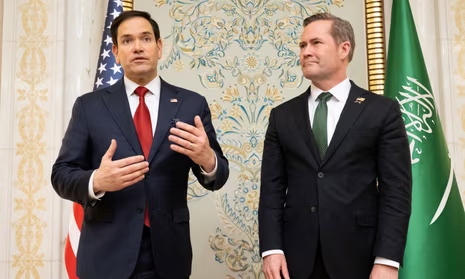Table of Contents
March 13, 2025 — Russian President Vladimir Putin has agreed in principle to a U.S.-proposed 30-day ceasefire in Ukraine, emphasizing the need to address the underlying causes of the conflict to achieve lasting peace.
Putin’s Stand on Ceasefire
During a news conference, he highlighted his conditional acceptance of the ceasefire. He underlined the necessity of settling core issues to avoid escalation. He was afraid Ukraine might take the negotiated time-off to rearm and regroup.
He said Russia would ask itself how to prevent subsequent mobilization and arms deliveries during the ceasefire. Putin stressed the importance of addressing these issues with U.S. leaders to create a sustainable and peaceful solution.
NATO and US Involvement
As U.S. President Donald Trump voiced hope that Russia would accept the proposed ceasefire, he noted positive signals from Ukraine. He said there were serious discussions between Putin and various other leaders. They subsequently discussed ending the fighting, and he indicated some plans for financial sanctions if Russia refused the ceasefire.
NATO Secretary-General Mark Rutte praised Trump for his efforts to break the stalemate over Ukraine. He emphasized the need for the member states to increase defense expenditures. President Zelenskyy of Ukraine supports the ceasefire proposal, hoping U.S. pressure will make Russia stop fighting.
Ukraine’s Position
However, Zelenskyy scolded Russia for its slow response and hinted a peace deal would take time. He stressed that decisive action must prompt Russia to agree to peace. Indicatively of the sense of urgency in Ukraine injected by the protracted nature of the war.

Further Challenges
Putin’s acceptance in principle of the ceasefire plan could serve as a starting point for some kind of de-escalation. However, many challenges continue to loom over the prospect of a longer-lasting peace.
It would require identifying, addressing, and resolving everything that led to the conflict. Therefore, conditions must be created that are agreeable to all parties involved and that guarantee compliance during the ceasefire. The international community’s involvement is thus essential in holding talks and enabling peace efforts in the region.
International Reactions
The international community has been very cautious so far. This was since European leaders coordinated to ensure funding and security guarantees for any peace deals done.
At the same time, other countries like Canada, Finland, and Sweden added their humanitarian and military assistance support to Ukraine. These approaches show fraudulent power in this new region affected by this war. Hence, negotiations in other diplomatic forums, like the G7, could be jeopardized.
Meetings in Copenhagen, Jeddah, and Malta preceded a peace summit in Switzerland in June 2024. It aimed to build international support for a peace process rooted in Ukraine’s 10-point proposal.
Current Senario
Indeed Putin’s approval in principle seems a potential de-escalation towards peace. Yet, proceeding and attaining a lasting peace is still challenging. Addressing the conflict’s root causes, the parties’ demands, and adherence to their agreement would lead to sustainable resolutions.
The international community still has a considerable role in facilitating talks and contributing toward achieving peace in the region.
Stay updated with the latest developments in World News, including Russia’s stance on the Ukraine ceasefire proposal by President Putin.

